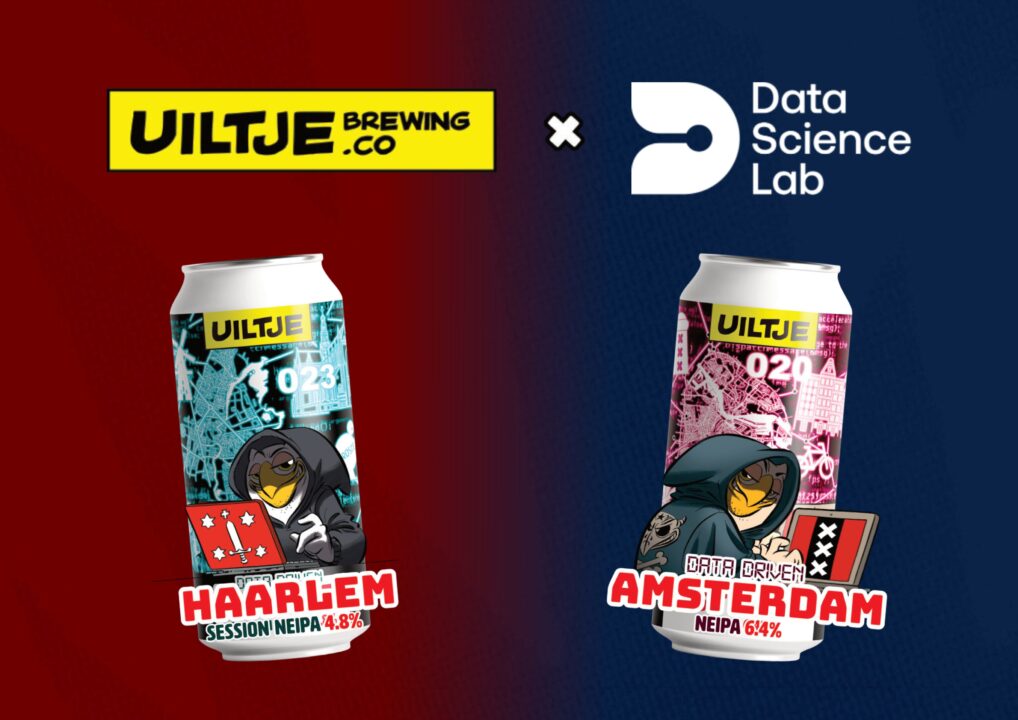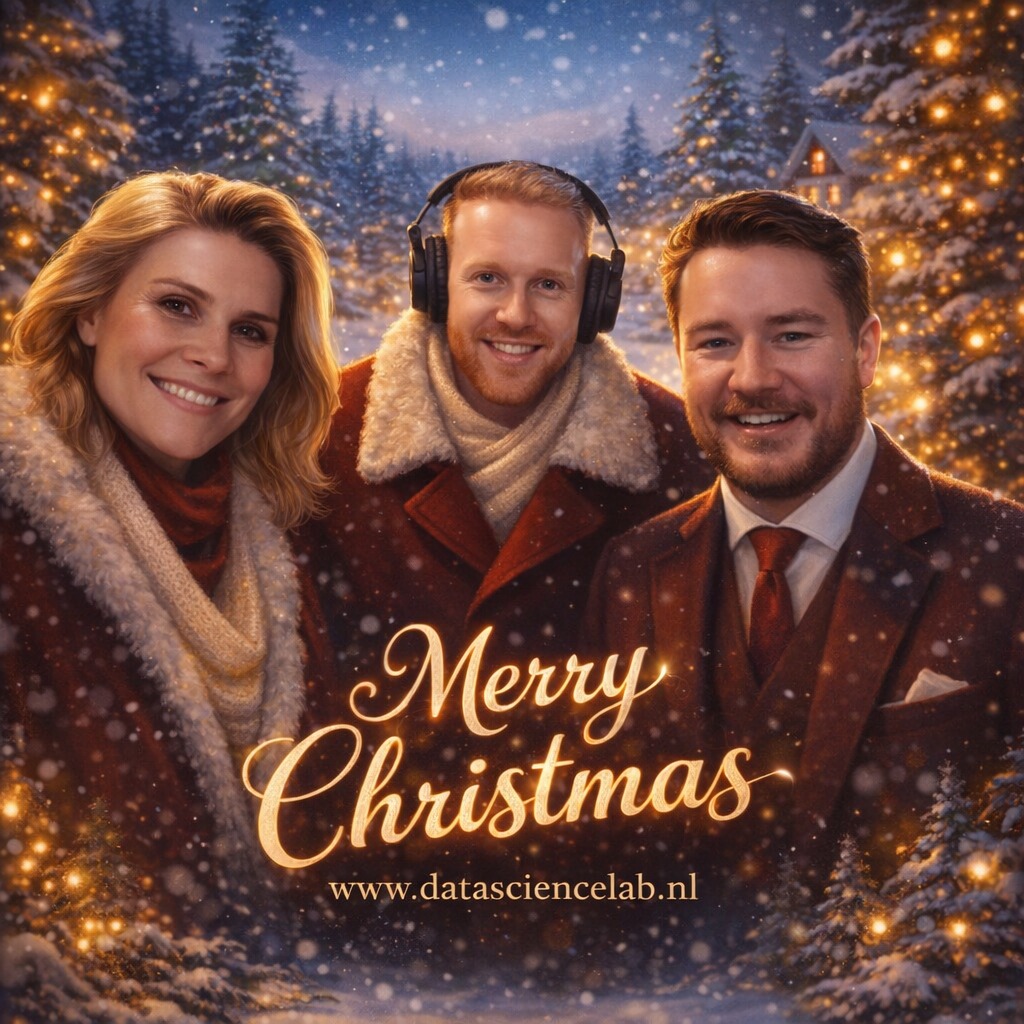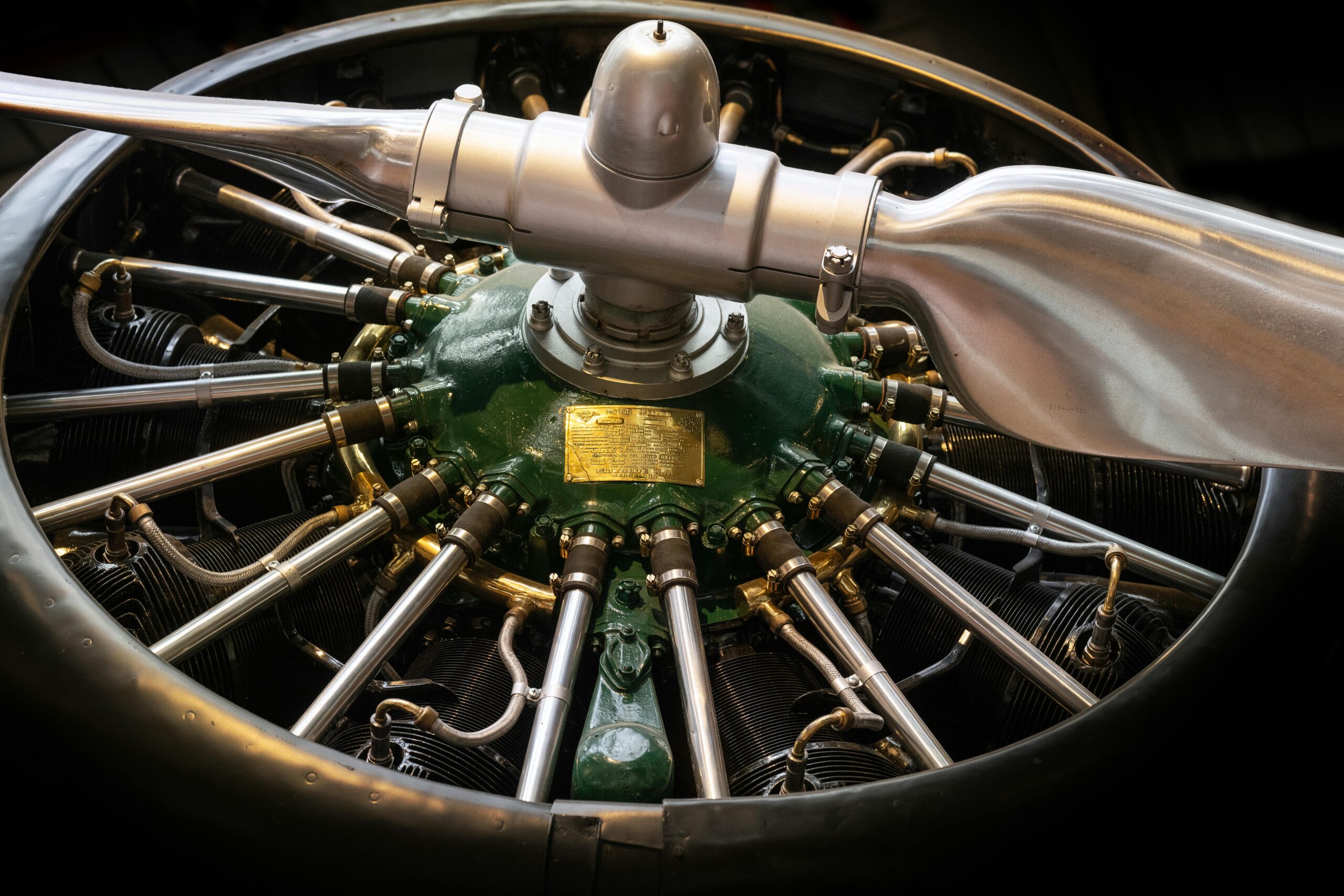Four years after brewing the first Dutch data-driven beer, Uiltje Brewery and Data Science Lab are joining forces again. This time with an innovative twist: two hyper-local beers, tailored entirely to the taste preferences of Haarlem and Amsterdam residents.
By combining advanced data analysis with the expertise of local specialists, a unique beer experience was created that perfectly matches regional preferences. These beers are not only a technical masterpiece, but also a tribute to the cities where both companies have their roots.
From data to craft beer: an ode to Haarlem and Amsterdam
In 2021, brewer Uiltje and data & AI consultancy, Data Science Lab (DSL), shook up the beer world with the first fully data-driven NEIPA, developed based on data analysis of consumer preferences. Now, in 2025, Uiltje Brewery and DSL are taking it a step further. The question: are there measurable taste differences between neighboring cities? And how can data play a role in brewing beers that match these regional preferences?
They found the answer in thousands of beer reviews, local trends and consumer data. Using a combination of Web-scraping and Machine Learning, DSL analyzed the taste profiles of residents of Amsterdam and Haarlem. The results were clear: While both cities are fans of a NEIPA, Amsterdam proved more keen on tropical, juicy and creamy flavors, while Haarlem preferred fresh, citrusy notes with a subtle acidity.
Two cities, two tastes, two different beers
The data analysis led to the creation of two exclusive beers, each tailored to their city’s taste preferences:
- Amsterdam NEIPA (6.5%) – Brewed with three spectacular hop varieties and a hybrid Pomona yeast, the result is a creamy, tropical and smooth NEIPA. A beer as smooth as the Jordan River and malty enough to stubbornly stay the course on the bike path. A tribute to the city and its rich history, this beer is presented as a gift to all Amsterdammers in honor of Amsterdam’s 750th anniversary.
- Haarlem Session NEIPA (4.8%) – With the grapefruit notes of Citra hops and the spicy flavor of Motueka hops, this easy-going NEIPA is a fresh ode to the city. As lively as the Grote Markt, but as pristine as the Kennemer Dunes. This beer celebrates Haarlem as the city where Uiltje Brewery has its roots and as a tribute to the region’s rich beer culture.
Beer and data: a future-proof combination
This collaboration not only underscores the innovative nature of both companies, but also shows that data and beer is a future-proof combination in the brewing process. “Local brewing is more popular than ever,” says Koen Koopen, Principal Consultant Data Science at DSL. “Through data analysis, we can not only identify taste preferences, but also predict trends, creating beers that perfectly match regional preferences. This approach proves that data and craftsmanship are mutually reinforcing and together can lead to a new level of beer innovation. “
For Uiltje Brewery, now an established name within the Dutch craft beer world, this project is an opportunity to show how innovation and tradition go hand in hand. “We are always looking for new ways to brew the most challenging beers,” said Mattia Mantovani, Uiltje’s head brewer. “With DSL, we show that data can play a crucial role in flavor development. This project proves that data and craft go together perfectly. “
Starting early next week, the beers will be available in Haarlem, Amsterdam and through the Uiltje webshop. Beer lovers and data enthusiasts can get ready for a tasting experience that literally and figuratively brings them closer to home.



